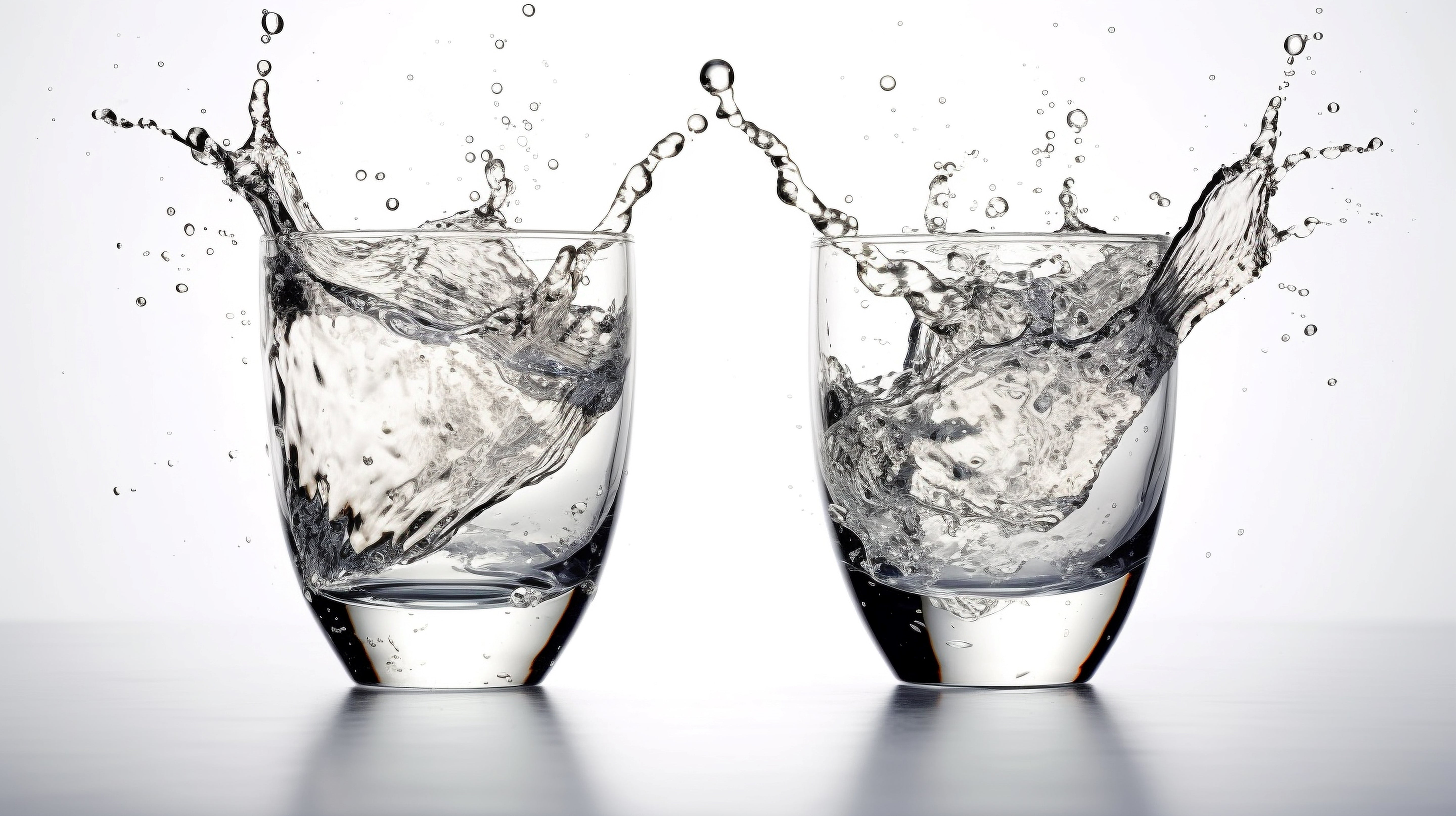Water is essential for life. It's vital for hydration, bodily functions, and overall health. In this article, we will explore the health benefits of mineral water versus filtered water, helping you understand which option might be best for your needs. We’ll also cover other types of water, such as purified and distilled water, and provide a comprehensive comparison to help you make an informed decision.
Table of Contents
- Introduction
-
Types of Water
- Mineral Water
- Filtered Water
- Purified Water
- Distilled Water
- Tap Water
- Health Benefits of Mineral Water
- Health Benefits of Filtered Water
- Comparing Mineral Water and Filtered Water
- Choosing the Right Water for Your Health
- Considerations for Mineral Water
- Dangers of Drinking Bottled Water
- Frequently Asked Questions (FAQs)
- Conclusion
Introduction
Importance of Drinking Water
Drinking plenty of water is essential for optimal body functioning. It keeps you hydrated, aids in digestion, and supports overall health. However, the quality of water you drink is just as important as the quantity. In this article, we compare mineral water and filtered water, two popular choices for health-conscious individuals.
Comparing Bottled and Filtered Water
While bottled water is often marketed as the safest drinking option, it has its drawbacks. Filtered water, on the other hand, offers a convenient and environmentally friendly alternative. Let's dive deeper into the different types of water and their benefits.
Types of Water
What is Mineral Water?
Mineral water comes from natural springs or wells, containing naturally occurring minerals like calcium, magnesium, and potassium. It is often favored for its crisp, refreshing taste and potential health benefits.
Common Minerals in Mineral Water
| Mineral | Benefits |
|---|---|
| Calcium | Supports bone health, prevents osteoporosis |
| Magnesium | Helps muscle and nerve function, regulates blood pressure |
| Potassium | Essential for heart and muscle function, fluid balance |
What is Filtered Water?
Filtered water is tap water that has undergone a filtration process to remove contaminants. Common filtration methods include activated carbon, reverse osmosis, and UV filters.
Benefits of Filtered Water
- Removal of contaminants like chlorine, lead, and pesticides
- Improved taste and odor
- Reduced exposure to harmful chemicals
What is Purified Water?
Purified water undergoes multiple filtration processes, including carbon filtration, reverse osmosis, and deionization, to remove impurities and contaminants.
Pros and Cons
- Pros: Highly purified, suitable for those with compromised immune systems
- Cons: Lacks natural minerals, may taste flat
What is Distilled Water?
Distilled water is a type of purified water that has been boiled and condensed to remove all impurities, including minerals.
Pros and Cons
- Pros: Extremely pure, free from contaminants
- Cons: Lacks minerals, less favorable in taste
What is Tap Water?
Tap water is supplied by municipal sources and undergoes treatment processes to ensure safety. However, its quality and taste can vary significantly based on location.
Pros and Cons
- Pros: Easily accessible, inexpensive
- Cons: May contain contaminants, taste can vary
REN Water Solutions for Filtered Water
REN Water offers a range of advanced water filtration systems designed to provide your household with clean, safe drinking water. Our solutions include:
-
Essential Whole House:
The Essential Whole House Collection provides fundamental water filtration, targeting basic contaminants like sediment and chlorine. It is an affordable solution suitable for small to medium-sized homes, ensuring improved water quality with minimal maintenance requirements
-
Premium Whole House:
The Premium Whole House Collection offers more advanced filtration capabilities, addressing a wider range of contaminants such as chlorine, chloramine, VOCs, and pesticides. This collection is ideal for medium to large-sized homes, providing enhanced water quality and protection for your household appliances.
-
Ultimate Whole House:
The Ultimate Whole House Collection delivers the highest level of water filtration, removing a comprehensive array of contaminants including heavy metals and industrial chemicals. This top-tier system is designed for large homes with high water usage, ensuring superior water quality and extensive protection against waterborne contaminants
Health Benefits of Mineral Water
Essential Minerals
Mineral water contains essential minerals that provide numerous health benefits:
- Calcium: Supports bone health, aids in blood clotting and muscle function
- Magnesium: Helps muscle and nerve function, regulates blood pressure and sugar levels
- Potassium: Essential for heart and muscle function, fluid balance, blood pressure regulation
Natural Hydration
Mineral water provides natural hydration and contains electrolytes that help replace lost fluids, especially after exercise.
Digestive Health
Mineral water can aid digestion and alleviate gastrointestinal issues. It also has an alkalizing effect that reduces body acidity, promoting better digestion.
Additional Health Benefits
- Regulating Body Fat: Aids in fat metabolism
- Blood Pressure Management: Balances blood pressure levels
- Cardiovascular Health: Supports heart health by reducing bad cholesterol
- Arthritic Pain Relief: Alleviates inflammation associated with arthritis
- Nutrient Bioavailability: Provides minerals with superior bioavailability
- Healthy Skin Promotion: Promotes collagen production for clear, firm skin
- Enhanced Physical Alertness: Increases muscle response rate
- Bone Health Support: Rich in calcium, supports bones, nails, and teeth
Health Benefits of Filtered Water
Removal of Contaminants
Filtered water effectively removes contaminants like chlorine, lead, and pesticides, reducing the risk of waterborne diseases.
Improved Taste and Odor
Filtration improves the taste and smell of water, making it more enjoyable to drink.
Skin and Hair Health
Filtered water can benefit skin and hair by reducing exposure to harsh chemicals found in unfiltered tap water.
Cost-Effectiveness
Investing in a home filtration system is cost-effective compared to continuously purchasing bottled water.
Environmental Conservation
Filtered water reduces the environmental impact by avoiding the use of single-use plastic bottles.
Comparing Mineral Water and Filtered Water
Mineral Content
| Water Type | Mineral Content | Purity and Safety | Environmental Impact |
|---|---|---|---|
| Mineral Water | High | Safe, regulated | Higher carbon footprint due to bottling and transport |
| Filtered Water | Variable | Safe, controlled | Lower impact, reusable systems |
Purity and Safety
Both mineral and filtered water are safe for daily consumption, but mineral water offers the added benefit of essential minerals.
Environmental Impact
Filtered water is more environmentally friendly, reducing plastic waste and conserving resources.
Choosing the Right Water for Your Health
Personal Health Needs
Assess your individual health needs and preferences to determine which type of water is best for you.
Lifestyle and Convenience
Consider the convenience and cost of mineral water versus filtered water. Filtered water systems are a one-time investment, while mineral water involves recurring purchases.
Accessibility
Ensure that you have easy access to high-quality water, whether it's mineral or filtered, to maintain your health.
Considerations for Mineral Water
Sodium and Potassium Levels
If you have specific health conditions, monitor your intake of sodium and potassium. Consult with your healthcare provider for personalized advice.
Label Information
Check the label for mineral content, sodium, and potassium levels, and the source of the water to ensure you’re getting the best quality.
Dangers of Drinking Bottled Water
Lack of Regulations
The bottled water industry lacks stringent regulations, leading to potential contamination.
Contaminants
Bottled water may contain contaminants like arsenic, microplastics, phthalates, and bacteria.
Health Risks
Contaminants in bottled water pose health risks, including carcinogenic effects, cardiovascular diseases, and cognitive issues in children.
Environmental Impact
The production, packaging, and disposal of bottled water significantly increase the carbon footprint and harm environmental sustainability.
Frequently Asked Questions (FAQs)
Can you drink mineral water every day?
Yes, mineral water can be consumed daily, but it should not be your sole source of minerals.
Is filtered water better for cooking?
Filtered water is better for cooking as it removes contaminants that could affect the taste and safety of your food.
Are there any side effects of drinking mineral water?
Drinking mineral water is generally safe, but excessive consumption can lead to mineral imbalances.
How often should water filters be replaced?
Water filters should be replaced according to our manufacturing instructions, typically Annually.
Can you filter mineral water?
Filtering mineral water can remove its beneficial minerals, so it's best to consume it as is.
Conclusion
Drinking clean and safe water is crucial for health. Both mineral and filtered water offer significant health benefits, but your choice depends on your personal health needs, lifestyle, and environmental considerations. While mineral water provides essential minerals, filtered water is more cost-effective and environmentally friendly.





